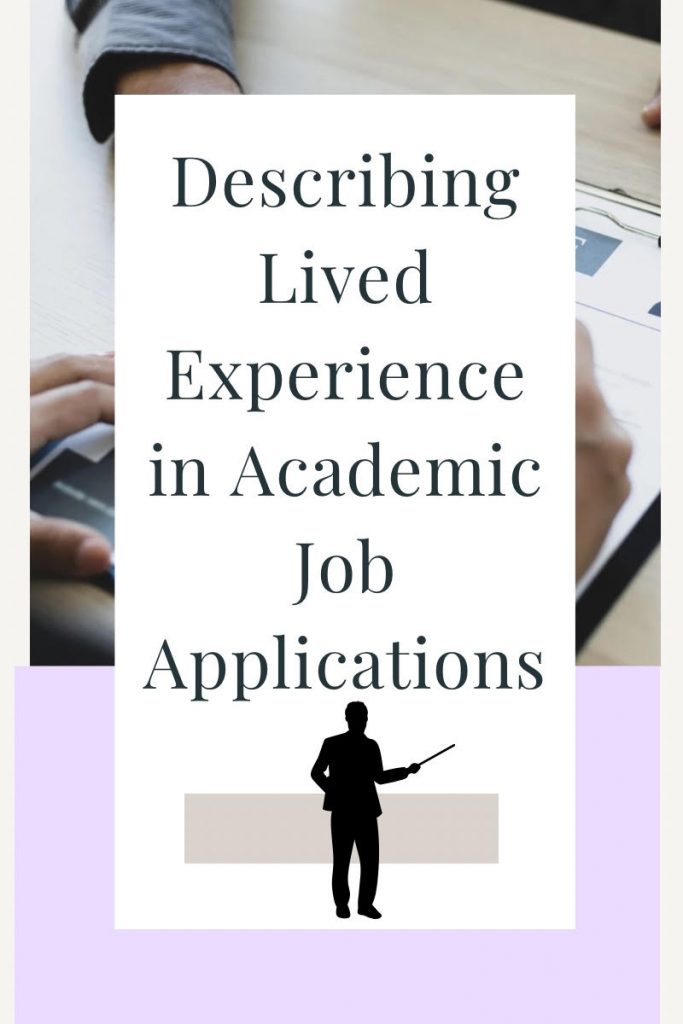When we asked two experts about the academic job market this year, two quotes stood out about the application review and hiring faculty attuned to student support and success,”
— Dr. Bettyjo Bouchey, Vice Provost of Digital Strategy & Operations at National Louis University.
“Read and reread the process:
“What we find most compelling, however, is those faculty who truly understand high-impact and inclusive teaching practice—those descriptions, and don’t be afraid to reveal your authentic self when creating your resume. Those candid and truthful snippets of yourself really stand out when being reviewed,”
— Nicole Wesley, Coordinator, Continuing Education in the Office of Distance and Extended Learning at Texas State University.
Both Bouchey and Wesley are successful administrator-academics who have diverged from a typical career path in higher education. Both are also breaking new ground at their respective institutions.
Their individuality aside, the two quotes offer a meaningful contrast to how the culture of academia is typically perceived. While academic work and research results are not uniform, expectations in the process usually are. Over decades from K12 through graduate school, students learn to conform to workload pressures and task management, to course assignment deadlines, paper structures, and style guides. Constant assessments tell students how they are progressing, providing regular feedback. Even an annual job review doesn’t provide that! And then, after all the conforming, when it is time to become a faculty member, the hiring managers want to hear about individuality.
Make no mistake, the central focus of your academic job application documents should be the expertise you have achieved in your field. Publications, presentations, teaching experience, peer reviewing and conference participation are all important to detail in your CV.
However, there are many opportunities to express the teachings of lived experience in academic job application packages.
In application materials, potential hires must demonstrate they are prepared to model resiliency, creative problem-solving, and critical discussion through multiple lenses for their students. They should also refer to any other experience, whether inside or outside the academy, that has prepared them to motivate and guide students through their paths of study.
In addition to completing voluntary disclosures concerning racial and ethnic identity, visible or invisible disability, and veteran status, there is an opportunity to include references to lived experience in cover letters, the CV itself, and in the teaching philosophy statement.
Cover Letter
In the cover letter, schools often ask candidates to describe their approach to addressing diversity issues and precisely how the approach is supported by their skills and experience. They want to know how the approach will transfer to the specific program and supporting at-risk students and retention. As part of the approach description, applicants can include details about their communications style, relationships with campus affinity groups and multicultural or intercultural exchange organizations.
The CV should include volunteer experience and highlight the populations that experience served, including at-risk students and underserved and marginalized communities. The CV should also include any paid or unpaid work that addresses raising literacy, numeracy, and computer/technical literacy in specific communities.
The most personal part of the academic job application package is the statement of teaching philosophy. This statement is where applicants have the most room to describe how being a first-generation student whose parents and grandparents did not have access to higher education influenced their teaching style. Lived experience of childhood poverty can be referred to when explaining how the applicant draws out student perspectives and challenges biases or assumptions through respectful dialogue. The applicant might describe their racial or ethnic identity in the context of how it influences text and assessment method choices. These can describe the creation and application of direct interventions that inspire, motivate, and encourage students to persevere and effectively manage difficulties and barriers.
Like any other suggestions, these can be taken as-is or changed to suit the applicant’s communications style. The most important aspect of including references to lived experience in academic job applications is authenticity or, as Wesley called it, “those candid and truthful snippets of yourself.”
Academic success might define the scholar, but the influence of lived experience defines the professor-student relationship. Hiring managers want to see how that works for every applicant.
Do you need help managing the creation of your academic or knowledge industry application materials? Professor Services at The Babb Group can help with CV & cover letter creation, job leads, and application completion services.
Latest posts by Kate Baggott (see all)
- The EdTech News for Friday, March 17, 2023: AI Supports Reading Development, Educators Detect AI-Generated School Work - March 17, 2023
- The EdTech News for Friday, March 10. 2023: Families Coding, Mindsets Changing, and Edusity is Educating - March 11, 2023
- The Hiring Manager: Human or Bot? Job Seekers Need to Know - March 9, 2023
